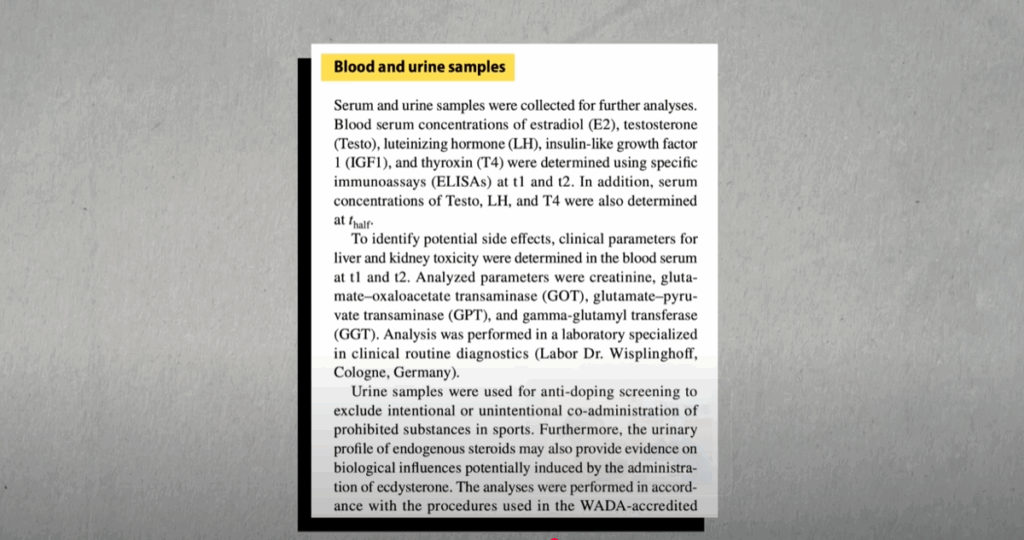Does Turkesterone Actually Build Muscle? A Deep Dive Into the Science Behind This Hyped Supplement
In recent years, turkesterone has exploded in popularity, with fitness influencers touting it as a “natural steroid alternative” that promises massive muscle gains without hormonal side effects. Marketed as a powerful, plant-derived anabolic compound, turkesterone has been compared to substances like Deca-Durabolin, drawing the attention of natural bodybuilders and supplement enthusiasts alike.
But does the hype hold up under scientific scrutiny—or are we once again being sold dreams in capsule form?
In this article, we’ll break down what turkesterone is, how it’s supposed to work, and most importantly, what the actual research says about its effectiveness for muscle growth.

What Is Turkesterone?
Turkesterone belongs to a class of compounds known as ecdysteroids, which are naturally occurring steroid hormones found in plants and insects. Just as humans produce anabolic hormones like testosterone, plants and insects synthesize ecdysteroids to regulate growth and development.
Because turkesterone’s chemical structure bears a resemblance to testosterone, there’s been speculation that it might exert anabolic effects in humans. In theory, that could mean enhanced muscle protein synthesis, improved recovery, and accelerated hypertrophy—all without the hormonal disruption associated with anabolic steroids.
This concept has been around since at least the 1970s, when Soviet scientists experimented with ecdysteroids in animal models. Early studies observed increases in liver protein synthesis in mice, but the data never translated into solid human evidence. Moreover, most of these early studies were limited in design and published in obscure journals, making them hard to validate.
The First Real Human Study: 2006
It wasn’t until 2006 that turkesterone’s close relatives were finally tested in a controlled human setting. A study conducted by researchers at the University of Florida—including Dr. Bill Campbell—assigned 45 resistance-trained men to take either a placebo or one of several supplements, including one containing a form of ecdysteroid (though not turkesterone specifically).
Participants followed a structured four-day per week upper-lower split for eight weeks. The results? No statistically significant differences in muscle mass, strength gains, or hormone levels were observed across any of the groups, including those taking ecdysteroids.
This was a critical turning point because it showed—at least in this scenario—that these compounds did not outperform a sugar pill when it came to building muscle.

The 2019 Study That Sparked the Hype
Fast forward to 2019, when a new study shook things up. In this trial, 46 men with about a year of resistance training experience were split into groups and put through a 10-week training protocol. Some took a placebo, while others received what was labeled as 100 mg of ecdysterone per capsule.
Surprisingly, the ecdysterone group saw greater gains in lean muscle mass compared to the placebo group. The excitement around turkesterone really took off from here, largely because this was one of the first human studies to suggest any real anabolic benefit from these compounds.
However, the deeper you dig, the more questionable the results become.
Red Flags in the 2019 Study
Here’s where the enthusiasm starts to unravel.
First, the supplement used in the study—Peak Ecdysone—was later tested independently and found to contain only 6 mg of ecdysterone per serving, not the 100 mg claimed on the label. That’s a 94% discrepancy. This raises immediate concerns about both supplement integrity and the validity of the results.
Second, the researchers used bioelectrical impedance analysis (BIA) to measure body composition—a method widely known to be unreliable and easily skewed by hydration status, food intake, and other variables. In contrast, the 2006 study used DEXA scans, which are considered the gold standard for body composition analysis.
Third, the placebo group in the 2019 study actually lost lean mass during the 10-week training period, which is unusual, especially for individuals following a structured resistance program. This raises more questions about the accuracy of the measurements or the consistency of the training protocol.
Finally, there’s the possibility of a false positive. Statistical anomalies can happen, especially in small sample sizes. According to supplement expert Dr. Eric Trexler, even a statistically significant p-value (e.g., 0.049) still carries a meaningful chance that the result occurred by random chance. If a few genetically gifted individuals were clustered in the ecdysterone group, it could easily have skewed the outcome.

Was the Supplement Spiked?
One logical assumption is that the supplement might have contained something other than ecdysterone—perhaps a banned substance capable of boosting muscle growth.
Fortunately, the researchers did perform blood and urine analyses to detect performance-enhancing drugs and found no traces of illicit compounds. That still leaves the possibility that there was an unknown ingredient that wasn’t part of the screening panel—or that the placebo effect played a much larger role than expected.
What About Anecdotal Evidence?
Plenty of people online claim that turkesterone worked wonders for them. However, anecdotal reports are notoriously unreliable for evaluating supplement effectiveness. Often, when someone starts a new supplement, they also:
- Dial in their nutrition
- Push harder in the gym
- Feel more motivated due to placebo
- Simply benefit from newbie gains
In a vacuum, it’s nearly impossible to determine whether turkesterone caused the progress or whether it was just coincidental.
The Bottom Line: Should You Take Turkesterone?
At this point, the scientific consensus is clear: turkesterone lacks strong, reliable human data to support its muscle-building claims. The single positive study is riddled with red flags—from misleading dosing labels to questionable measurement techniques and potential statistical flukes.
Until more rigorous, peer-reviewed research is conducted (preferably with DEXA scans, larger sample sizes, and verified supplement purity), turkesterone remains more hype than help.
If you’re looking to maximize muscle growth, your best bet still lies in:
- Progressive overload
- High-quality protein intake
- Adequate sleep and recovery
- Evidence-based supplements (like creatine and whey protein)
Final Thoughts
While it’s always exciting when a new supplement hits the market with bold claims, it’s important not to get swept up in the marketing machine. Turkesterone may turn out to be useful one day—but until we see stronger, reproducible data, there’s no compelling reason to add it to your stack.
For now, save your money, focus on the fundamentals, and stay skeptical of miracle muscle builders.



